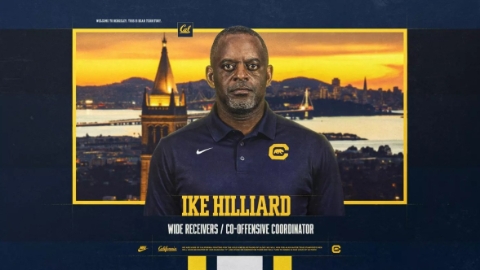This is a tremendous interview with Coach Wilcox talking in detail about how the Cal program scouts and evaluates recruits. A rare insight into how this staff is building the culture and defining their kind of guys.
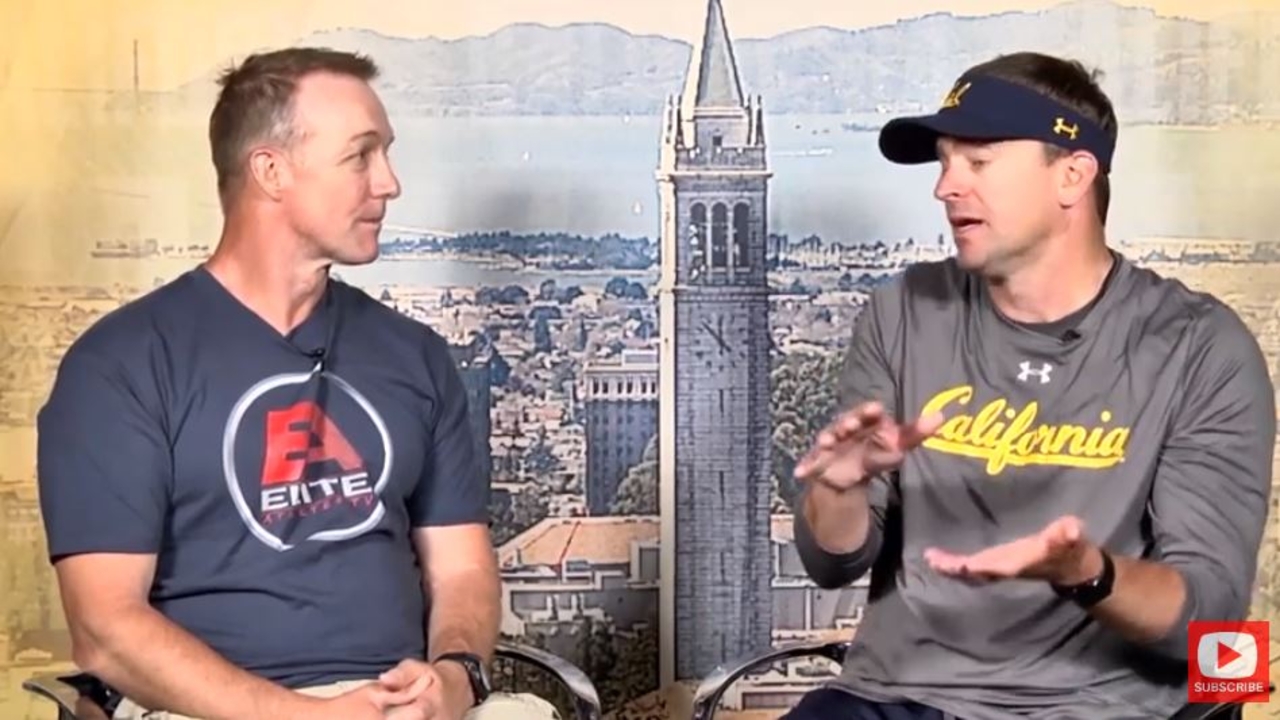
Today, we're talking to Justin Wilcox, head coach at Cal. I was able to sit down with him for about 20 minutes before last season. And what he said then still holds true today. Justin opens up with me about a lot of his philosophies, what he's looking for in high school recruits as a coaching staff and what they're thinking about when they're evaluating players. And you really don't want to miss the end when he talks about what he's looking for in terms of toughness and goals, because those are really important for young players.
“We talk a lot about culture and intangibles here,” said Wilcox. “And first and foremost for us to be successful, we’ve got to play smart and tough. And so everything we do, from our workouts, to our meetings to just the life we lead, it's with that in mind how we become smarter and tougher. You know, everybody is training to become a better athlete and raise their football IQ. But when you watch us play, that's what needs to show.”
Toughness is a term you hear a lot in football. How would Wilcox define that term himself?
“Yeah, that's a great question,” said Wilcox. “Everybody talks about it, right? What's more important is to bring it to life and put it to action. I think there's a couple different ways. Obviously, the physical part of the game. Football is a physical game, as you know, and it takes a toll on your body and you have to persevere. You're gonna have sore ankles, and those things and workouts are tough. But I think also the mental toughness. When you get tired and things are stacked against you, whether it's in school, or whether it's in a football game, or it's going to happen in life. When you're going to have those moments that you got to be able to push through and have that mental toughness and then the emotional toughness. You have the good days. You have the bad days. And being able to kind of have that focus that I'm going to attack the day, no matter what’s in it, and things do happen. We all go through things. Every player, every person. And to have that emotional toughness. So those three things; the physical, the mental and emotional are a big part of this.”
There are a lot of elements that make up a tough player and a good athlete. What is the Cal staff looking for when they’re analyzing film?
“That's a great question,” said Wilcox. “First and foremost, before we see the film, we're looking at the academic performance and what they're doing in school. We're making sure they're living right off the field. You know, checking their social media and finding out who these guys are. And then on the field, we're looking for production and that comes in a lot of different ways and shapes and forms.
“At quarterback, you want to be able to see a guy that can complete the ball and be accurate, but he's got to show toughness. And does he move the team up and down the field? Now he might be 6’5”, he might be 5’11. They may look different physically, but you're looking for that production.”
Talented high school quarterbacks can vary from raw to extremely polished. Does that play much into the Cal staff’s evaluation?
“Yeah, I think you see kind of different phases of players and what you're looking for is do they have the ability, whether they're polished or not, to grow as a player that can help us win the Pac-12,” said Wilcox. So when we watch a player, or if it's a quarterback specifically, does this guy have the tangibles and intangibles to be that person? Some guys have grown up with trainers and then play in programs where it's much more intensive and some guys don't. So we take that into account and at the end of the day, do they have the ability to get there? That's what we're what we're looking for.”
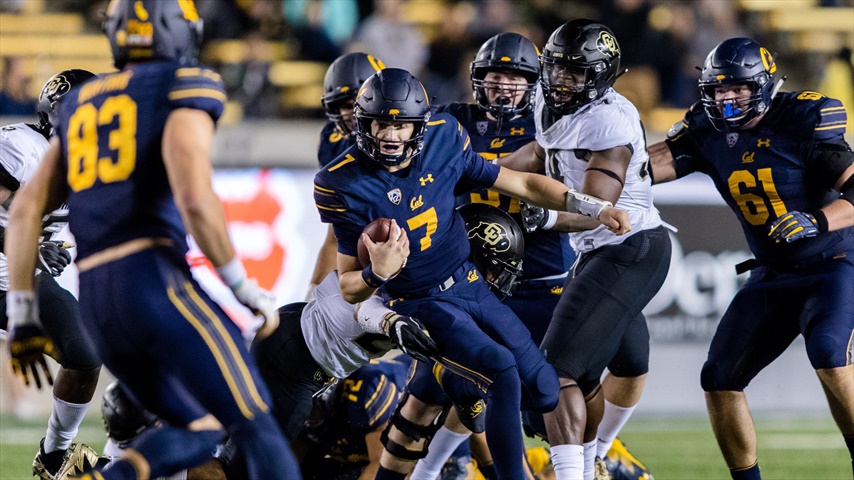
For quarterbacks, the ability to read defenses can often make or break them as a player. How much does Wilcox look for those innate abilities in a high school QB?
“You’re always trying to make them play quote unquote, left handed,” said Wilcox. “And I don't mean that in a literal sense, but take away what they do best. So if a guy, if a quarterback’s a pocket guy, and he's really good stepping up, we want to make it uncomfortable for him there. If he's a guy, that's a zone read guy, we want to maybe make him stand in the pocket. Does he throw it? Certain routes? You know, is he a big game guy? Is he less accurate down the field? So we're going to try and look at what the offense and the quarterback does specifically. Maybe it's targets on the field and specific areas, but we're going to try and take that away. And so within our defense, we're gonna have certain calls that that move the stress around, so maybe we're going to take away the quick game and we know we're going to make them try to beat a strong fades, for example. So we're always trying to take away what they do best.
Often quarterbacks love to practice what they do well, but what I'm hearing from you right now is that you need to do all of it. Because the more that you can do well, the harder it is as a defensive guy to take it away?
“Absolutely,” said Wilcox. “If a guy is good in the pocket, and he can run, he's good on the move and creates when things don't go well in the pocket. Accuracy is always huge, as we all know. But yeah, if it's a few different things (qb’s do well), it becomes a much, much more difficult game plan for the defense.”
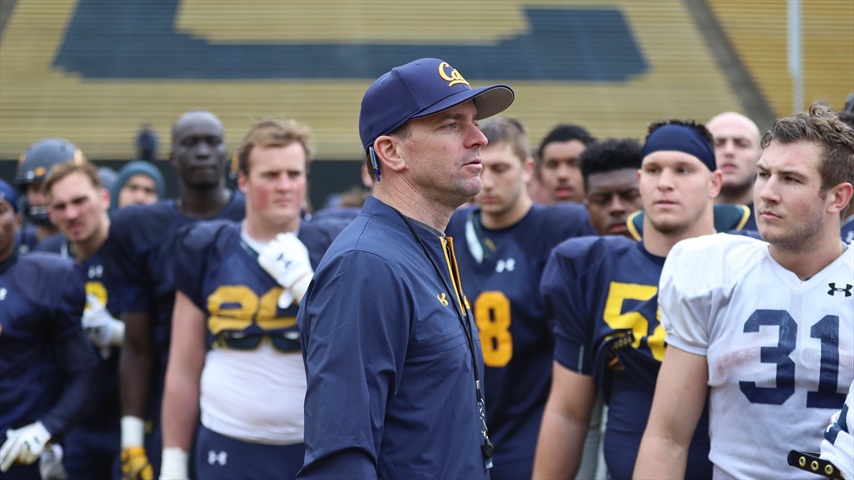
For me, the number one thing I look at is accuracy. Look at a kid and if he's not accurate, he's not there. How do you train your quarterbacks here to become more accurate?
“I think some of that is kind of innate, to be honest with you,” said Wilcox. “I mean, I think you can help a guy with his accuracy in terms of his fundamentals and his footwork, his eye control, his body positioning, but there's also a kind of the innate ability to throw the football and as you know, there's quarterbacks that have an over the top or three quarter delivery. And some guys are really good playing that way. So we're not trying to always start from scratch. If a guy has good accuracy, you think we can help him make it great, but I think it's probably difficult for a guy to be a two on accuracy and make him a 10.”
That gets back to kind of a lot of what we do a lot of the techniques that we're teaching or teaching for personal body styles. Each quarterback can be different. There's no perfect throwing motion, but the best throwing motion is one that's your most accurate and most efficient coming off. So same thing for other athletes, as they train now, what do you think high school kids should be emphasizing?
“The one thing that we really do like is people doing different things,” said Wilcox. “And when I say that, I mean playing football, playing basketball, running track, playing baseball, wrestling. And I know there's a lot of pressure these days to focus in one area and I understand why that pressure exists but for the betterment of the athlete and the long term benefit of playing others, sports, I think is significant. So we like when a guy is a football player and he goes to play basketball or wrestles and plays baseball, and we know that maybe some of the football skills might be a little less, but in the long run, they're gonna be better for it.
“And then the second piece of that is just the competition. You know, we want competitors. And sometimes, as you mentioned, people do what they do well, because it's easy for them. I want to see somebody that will go out and push themselves. Maybe they're not the gonna win the 100 meters, but they go out and work at it and they compete for the sake of competition. Or maybe they're not the basketball star like they are in football, but they go out there because they're trying to win and be a part of a team and compete. I think that speaks volumes.”
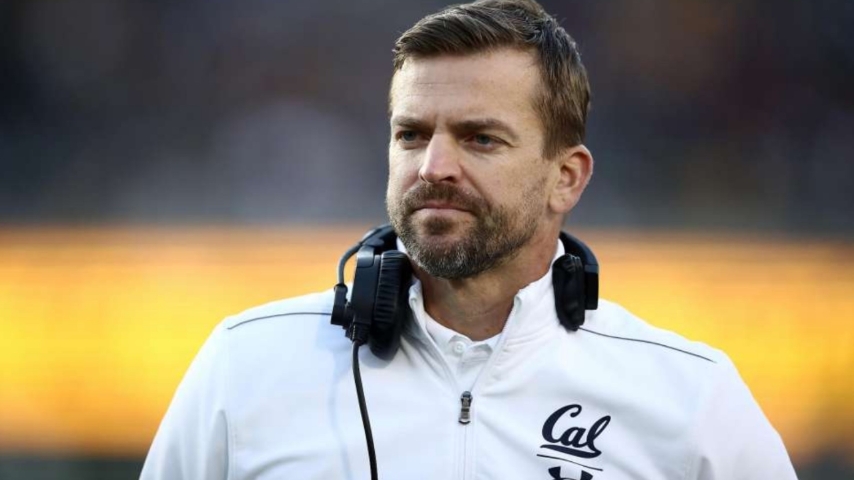
And then always looking to compete and win with quality characters a huge, huge piece of it too. Obviously, being part of a team, chemistry matters.
“Absolutely,” said Wilcox. “I think that more and more that we get that at the youth levels and understanding that, you can have your own personal goals but still be a great teammate. And we spend a lot of time on that here because because the best teams and the best-performing teams have the best chemistry. And we all, I think, have been a part of those teams. And you know when it's not right, and you know what that feels like? Because I think we've been on those as well. So I think the fact that being a great teammate and being honest and accountable and being a tough person that's in it for the team, I think that's really key.”
And you mentioned a really important piece. And I think, especially for younger players, goals, goal-setting, what's your approach to goal setting?
“I think one thing we talked about, we talked about our team goals last night, in terms of what we're
trying to get done, why are we here,” said Wilcox. To win in a bowl game, win the North, win the Pac-12? And then, individually, what is it that you as an individual have as personal goals on and off the field, and we talk a lot about those. And once you set them, we know what those are. But now it's about how do we get there and the process that it takes and the decisions you have to make on a daily basis to achieve them because it's one thing to slap them up on the wall, but it's another thing to live the lifestyle. It's gonna allow you get there.”
Which brings us right back to toughness, which is where we started. You set your goals and you have to have the mental toughness and the ability to focus on the right now, but still keep that long picture in mind. How hard is that for young athletes?
“I think it's hard for everybody,” said Wilcox. “And I think the older you get, the more you kind of can appreciate it. And we’ve talked about that daily - the focus and the decisions you have to make every single day, from getting up and not sleeping in, to drinking your water, to being early to your clas to having the right gear on in the weight room. The have the right gear on with last rep of your last set of overhead squats. Every part of individual the focus in a meeting, to be able to do that day in and day out. That's what separates people because there's a lot of talent out there, and some have more than others but the what really separates people is the habits and the lifestyle, those decisions that you're making on a daily basis.”
Other stories:
Pittsburg HS OT Ryan Lange Talks Cal offer
Bears Snag Highest-Rated Recruit in Last Half Decade in WR Sturdivant

